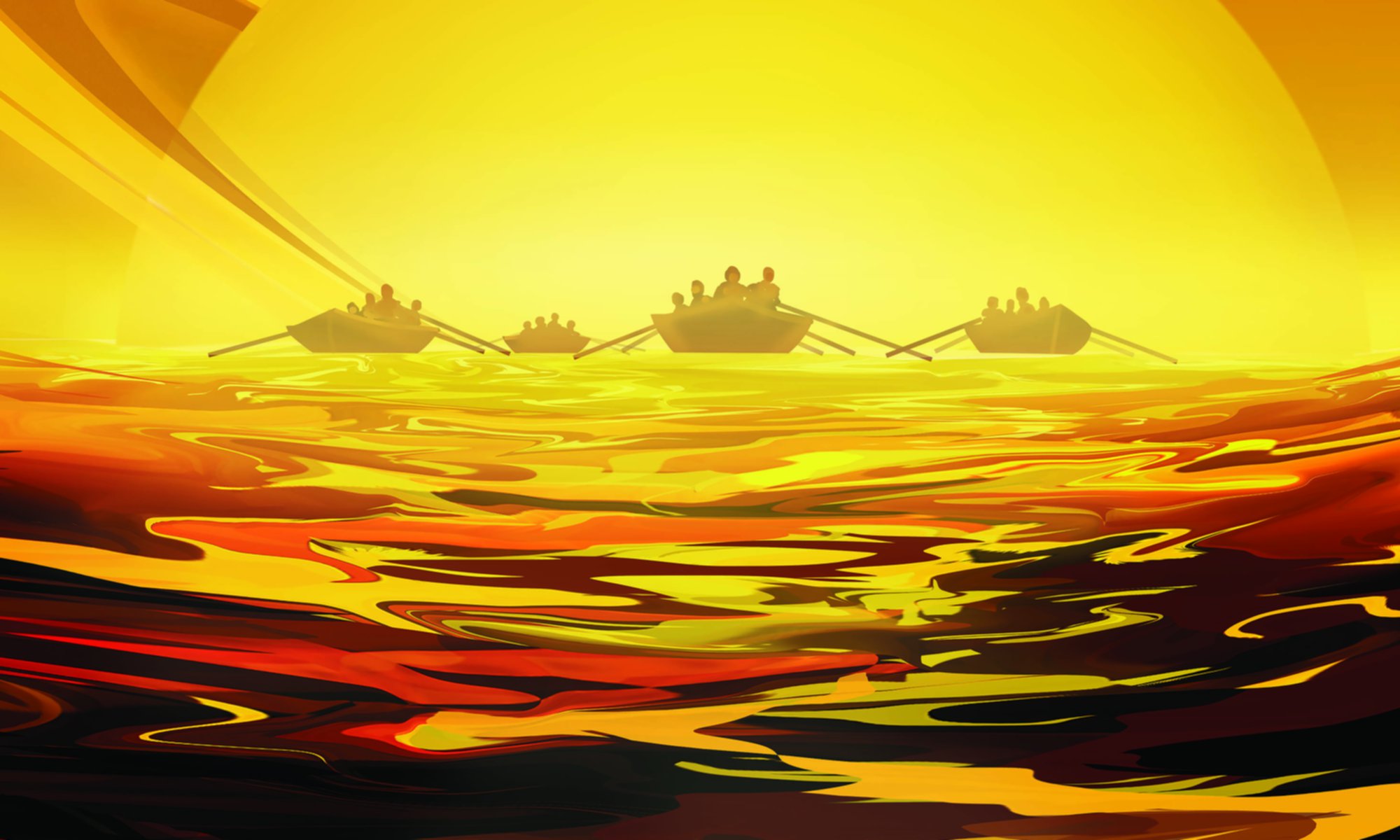You are marooned on a single planet with over 7 billion of your species. The population continues to climb and resources are becoming scarce. Food and potable water are serious issues across the planet. Mass extinctions are occurring. Life threatening disease affects over 24 million people on one continent. Worse, the climate seems to be getting warmer, the seas higher, and the weather more severe. The near planets are not habitable and take time and resources to reach. Celestial events like asteroid impacts and massive solar flares could annihilate your species. In the near term, it looks like you will not be able to leave your planet. A new mindset may need to be adopted. The mindset that we are not living on a planet but are marooned and unable to escape.
Take a moment and think of being marooned on a small island. Survival becomes paramount. Water, shelter, rescue, and food are the priorities in that order. Imagine limited resources of food, water, and building supplies compounded with the fact that each week you spend on the island another person appears. But wait there’s more, on a daily basis the tide gets a little higher. More people, less resources, dwindling space, and you don’t know when but sometime in the future a tidal wave will hit the island. There is no hope of rescue. Only the inhabitants of the island can rescue themselves. After a quick scouting mission it seems like the islands visible from yours are uninhabitable. Day to day subsistence living will not save a future generation. What can you and the people on the island do to ensure their children’s survival? Perhaps, start looking at what it means to live on the water or on one of the inhospitable islands.
Now imagine the island is Earth, your species is human, and the sea is space. Deciding to move people to space and other planets is a huge endeavor. It is hard to obtain ample funding and resources to explore off world living. It is most likely easier to get funding and resources for a new aircraft carrier. It may be easier to get an aircraft carrier than a space ship or space station because of the wrong mindset. We think an aircraft carrier will protect us and this may be true short term. However, an aircraft carrier may not be able to affect future generations.
Let’s think about our little island again. Due to dwindling resources and myopia, all the large game and easy to gather food are gone and you are relying on grassy plants and small fish for food. Faced with dwindling resources and a need to diversify from the island, would a cannon be a welcome suggestion? In this case, a cannon does not build a boat nor feed anyone. It could make a good anchor but really is not its purpose. A cannon is a means to an end which could be used to force boat building or take someone’s food. However, this is the least industrious way of getting work done. If the cannon were one choice and the other a sail for the boat, which is the better decision? Assuming protection is not the immediate concern then a sail would be a welcomed addition to the boat. What if everyone believed the sail was the best choice and because of this group thinking it reduced the need for the cannon? If everyone was on-board with the boat and sail idea perhaps future choices about the boat would be much easier. In other words, if people believe the survival of future generations are paramount then less would be spent on fleeting endeavors like weapons.
Marooned without chance of rescue means survival needs to be prioritized. Survival in this case is not the current generation but rather two or three generations away. We need to stop thinking of living on Earth but rather surviving as an entire species. The best survival of the species would be divergent plans. A plan to live beneath the sea, a plan to live on another planet, a plan for massive space stations, a plan for moon living, and a plan to expand to the edge of our solar system. All these plans need to be resourced and begun now. Our generation may make insignificant progress but no progress is unacceptable. We need to position future generations to maintain humanities survival.
Two to three generations is not a distant future. A grandparent looks at the second generation in their grand children. If really lucky, a great grand parent can glimpse the third generation. As a grand parent or great grand parent how will you explain to children that a generation believed they were not important enough to survive. In fact, your generation was so callous you decided not to give them a chance.
How do we survive? How do we all survive for millennia? We survive together. As a species and a planet. We change our mindset from subsistence to survival. Survival is based on We not Us and Them. We all love our children bringing us to the same table, together. Because, in the end, we are all on the same island, Earth.
